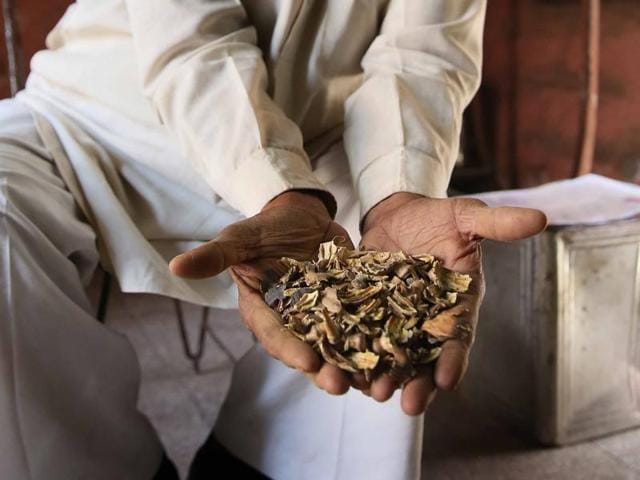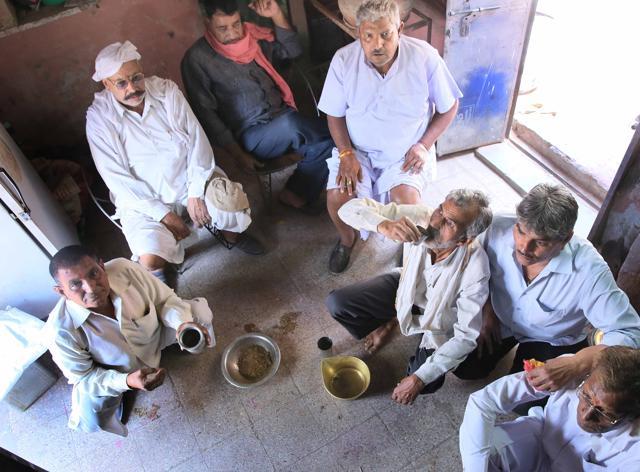Naya Savera fails to bring new dawn for doda addicts in Rajasthan
A paramedic at the Kolayat community health centre, where one such camp was held, said 98% addicts who came for treatment were still hooked.
The state government claims the de-addiction campaign, Naya Savera, it launched in January last year for doda addicts in 17 districts is a success, but its so-called beneficiaries paint a different picture.

On paper, 62-year-old Ranjit Singh was admitted to the SDM Government District Hospital in Bikaner from August 6 to 14, but he didn’t spend a single night there. “Doctors said just sign some papers so we can say we admitted you. They gave some medicines and let me come home. On August 14, they gave me the discharge certificate,” said the farmer from Napasar.
These government-funded, eight-day de-addiction camps offer free stay, food and transport facility to patients. They are provided medicines from Day 2 and the dosage is gradually reduced until Day 6, until it is completely stopped on the seventh day. After one day under observation, the patient is discharged.
However, a paramedic at the Kolayat community health centre, where one such camp was held, said 98% addicts who came for treatment were still hooked. The health professional, who did not want to be named, claimed the doctors tried to treat the addicts with medicine but soon gave up.
“On the second day of the camp, I collapsed in the hospital’s washroom,” said Chand Ratan Vyas, 64, a resident of Bikaner. “Friends rushed to my rescue and gave me doda. In some time, I was up and about.
“We need doda to be normal.”

State nodal officer Ram Babu Jaiswal said in 198 camps, 23,201 addicts were treated — 2,970 inpatients and 20,225 outpatients. In 2015-16, 40,137 addicts benefitted from 431 camps.
The state assembly was informed during question hour in the Budget session that under the Naya Savera campaign, 800 camps had to be organised but only 629 were held until March this year. The government is set to organise 250 more camps in 2016-17 to help addicts cope with withdrawal symptoms after sale of doda was stopped on March 31.
The programme also requires doctors to perform at least 13 follow-up checkups, but those discharged claim otherwise.
Read: Addicts forced to choose between doda and death
“There was no admission, the medicines didn’t work on us and doctors were forced to let us have doda when our condition began to deteriorate,” said 72-year-old Paburam, a farmer from Bandhala village.
These tales of the campaign’s failure point to an evitable conclusion: Not all addicts can give up doda, said a chief medical and health officer who did not want to be named. “People who have used doda for 20-30 years cannot give it up now. They will die soon without the narcotic. They might commit suicide,” said the health officer.
In Barmer alone, two addicts have died and one attempted to take his own life but failed.
Ladhuram of Naya Somesawa village in Baitu block died a day after he was discharged from a de-addiction camp, and on August 16 last year, Ramesh Rajpurohit died as his condition deteriorated from going cold turkey. Another recovering addict, Babulal, consumed poison on March 30 when he failed to get his daily fix, but timely access to a hospital saved his life.
Himtaram, Babulal’s father, realises that his son was lucky but is also resigned to the fact that more such cases are likely to emerge.




